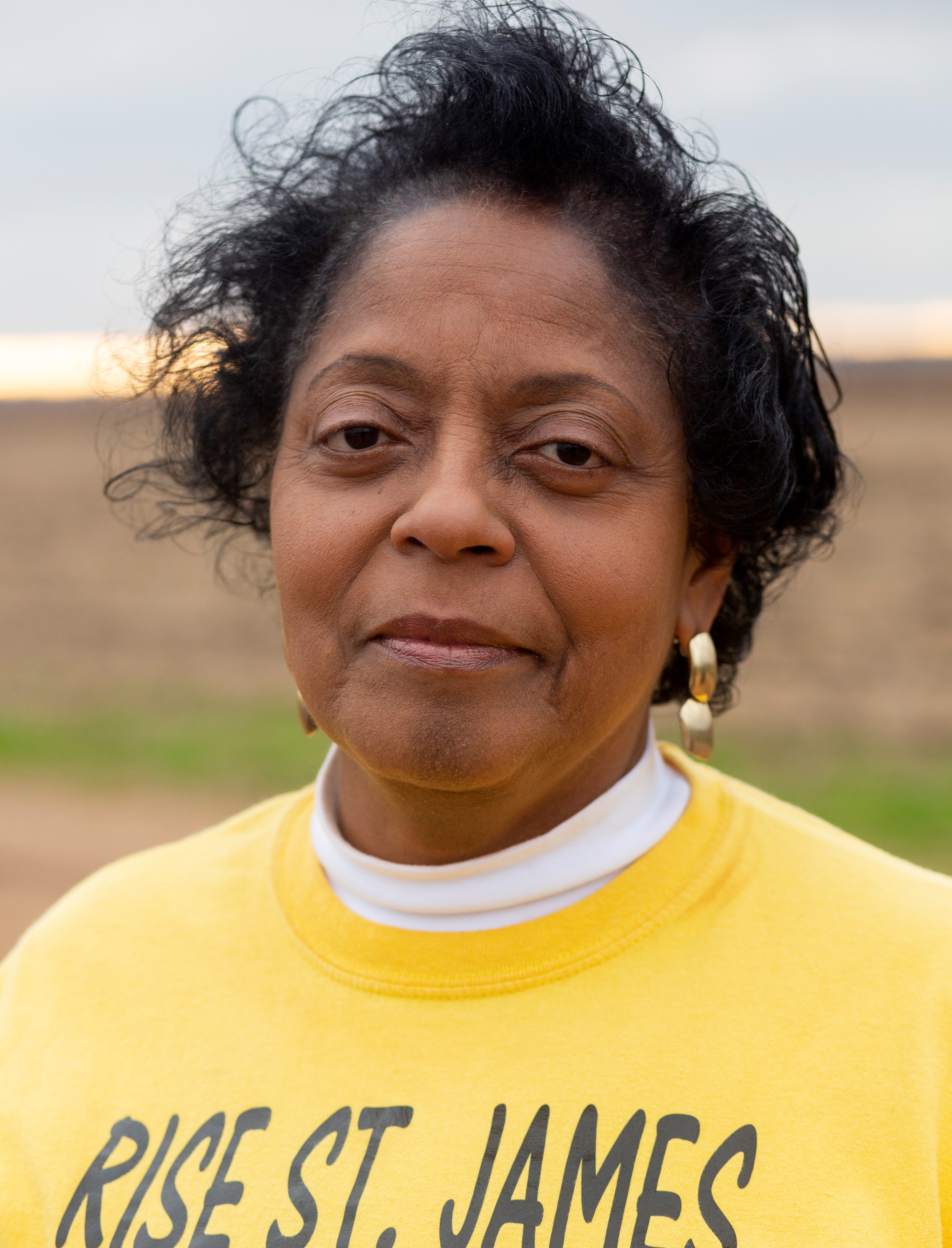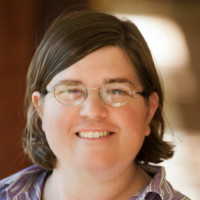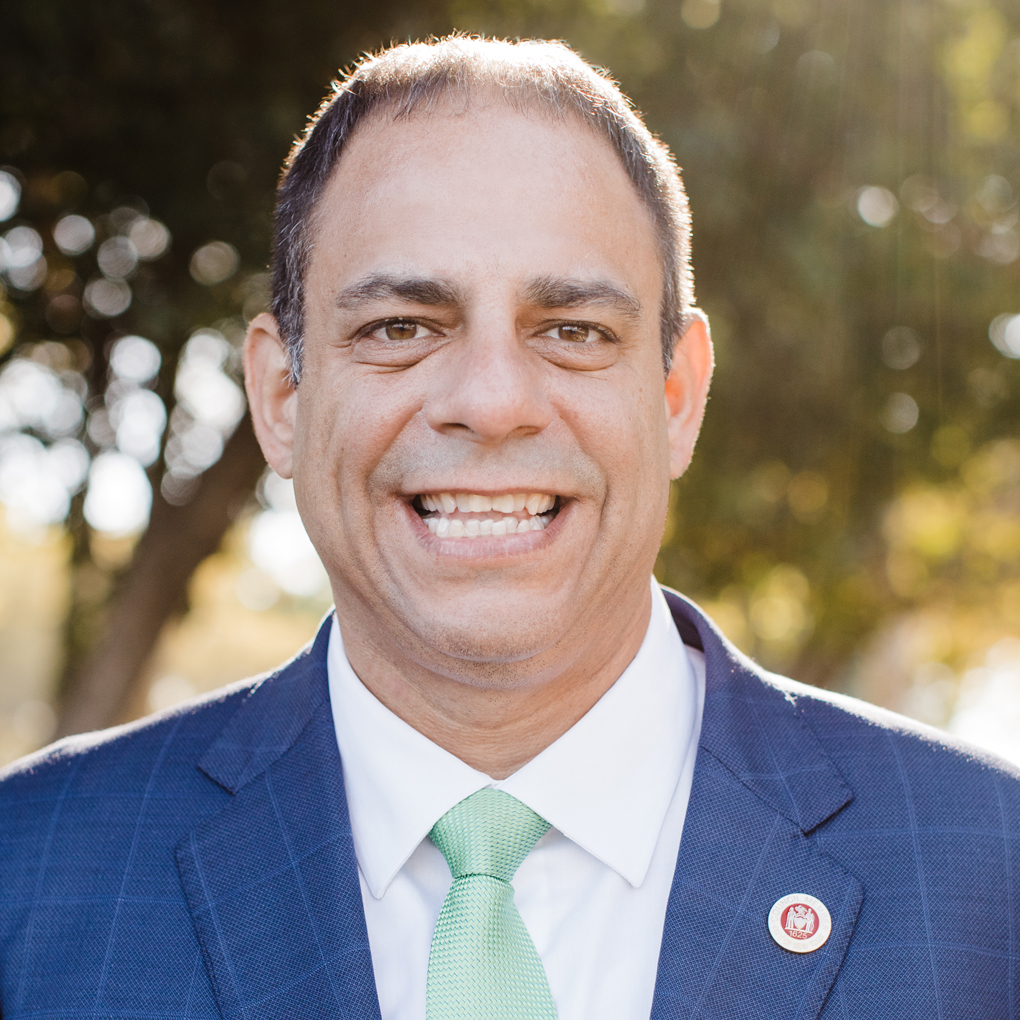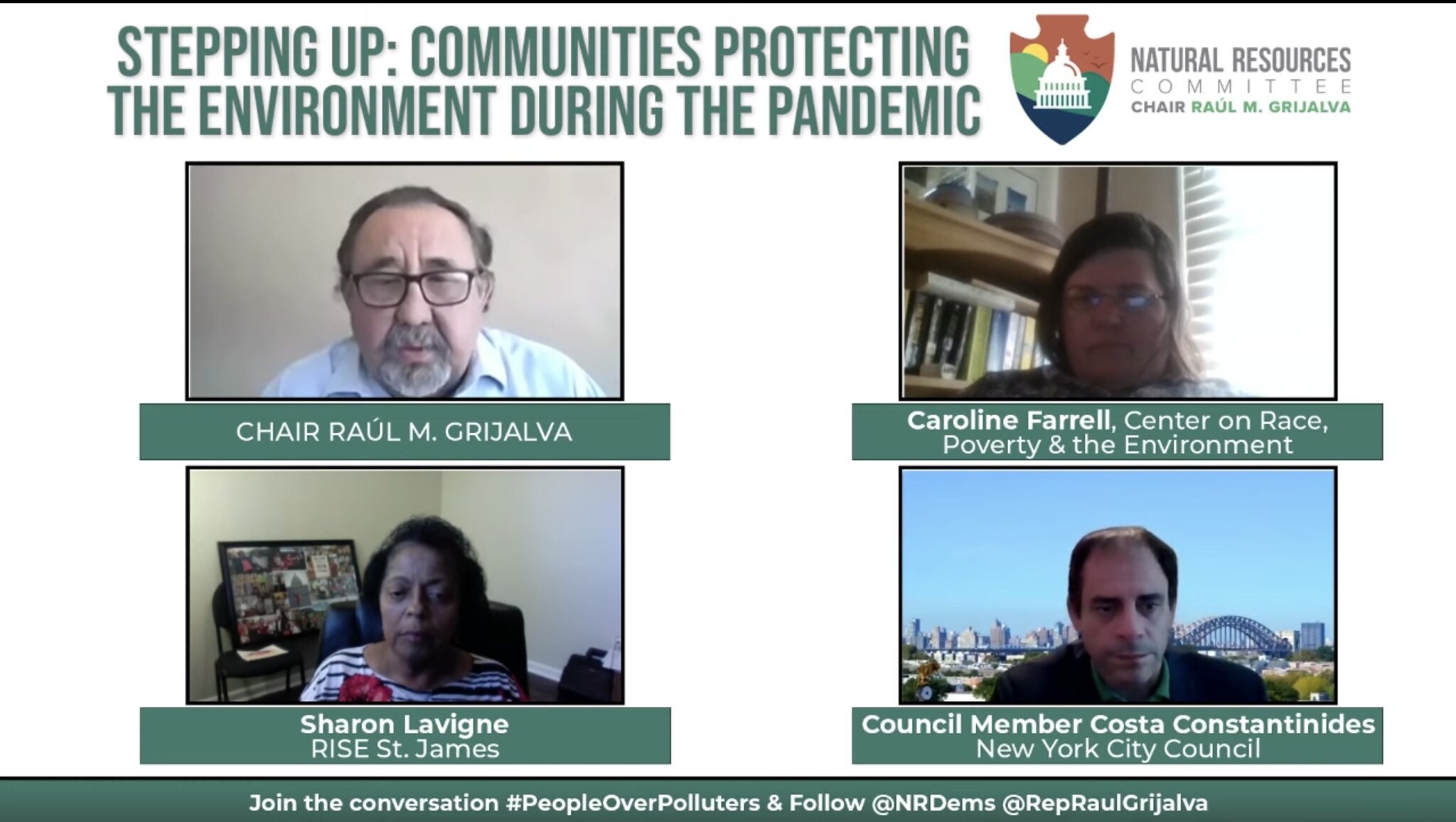HIGHLIGHTS: Chair Grijalva and Local Leaders on Communities Protecting Public Health, the Environment from Trump in the Pandemic Era
Washington D.C. – On Wednesday, May 13, Chair Raúl M. Grijalva (D-Ariz.) hosted a virtual roundtable with community leaders around the country who are fighting against polluting industries and the Trump administration’s environmental rollbacks during the coronavirus pandemic. As Grijalva said in opening the event,
“Today’s panelists are living proof that we are not powerless at all."
The full recording is available at https://bit.ly/2YUIBz0. Key highlights and takeaways from the conversation are included below.

Sharon Lavigne is the founder of RISE St. James, an environmental justice group in Louisiana’s infamous Cancer Alley. Her organization successfully prevented a new plastics manufacturing plant from coming to their already polluted community last fall. RISE St. James is now fighting construction of a massive new plant that Formosa Petrochemical Corp. started building after the pandemic was already underway. As she told us, local and state leaders have offered the group no support, but that hasn’t stopped RISE St. James: “It’s not just listening to what the governor says and he has all the power. The people have the power too.”
- Quote: (42:39) “[The governor]’s not gonna stop it because he approved it, because that industry will bring the state money. But it will bring St. James death. We will die if this industry comes to St. James. The public officials have the power to stop all of this. They are not listening to the concerned citizens. And it’s a shame I have to form an organization to try to stop what’s going on in St. James”

Caroline Farrell is the executive director at the Center on Race, Poverty & the Environment (CRPE) in the San Joaquin Valley of California, one of the country’s busiest agricultural regions. CRPE works with predominantly low-income Latinx communities, many of whom have been declared essential workers during the pandemic. They are routinely exposed to pesticides and other toxic chemicals, hazardous waste, and some of the worst air in the nation, and have poor access to clean drinking water. CRPE has formed partnerships to phase out the dangerous pesticide chlorpyrifos in California, inform oil and gas permitting, and distribute bottled water to residents.
- Article: https://myemail.constantcontact.com/Our-response-to-COVID-19.html?soid=1101793155657&aid=h39IpEqQON0
- Quote: (37:22) “People were coming off of work, lining up to get water because they can’t drink their water from their tap. Because we knew… we had water to give out.. We knew we didn’t have enough for everybody. And it was really painful having to turn people away. Because we had to create a list of people who we had been told were in most need and had to give to those people.”

Council Member Costa Constantinides has been the chair of the New York City Council’s Committee on Environmental Protection for nearly five years. Since President Trump came to office and started letting polluters dictate environmental policy, Council Member Constantinides has redoubled efforts to protect his district and the rest of the city from air and water pollution. He authored the landmark Climate Mobilization Act, signed into law on Earth Day 2019, and has led the fight to pass environmental justice legislation. His next major effort is advancing the Renewable Rikers Act, which would convert a prison facility into a hub for sustainable solar energy and wastewater treatment.
- Article: https://grist.org/article/new-york-citys-newly-passed-green-new-deal-explained/
- Quote: (28:48) “New York City’s COVID-19 crisis is also, in large measure, a case of environmental injustice. We are the epicenter of the epicenter here in Queens. If you look at a map of the hardest hit neighborhoods by ZIP code, it virtually mirrors key factors for determining whether a neighborhood suffers from environmental injustice. Corona, Queens, the hardest-hit neighborhood in the city, is hemmed in by highways and sits in the shadow of LaGuardia Airport. Southeast Queens, home to one of the largest middle-class African American communities in the United States, has had to deal with waste transfer stations, inadequate wastewater infrastructure, and traffic to and from John F. Kennedy Airport. The Trump administration’s lax enforcement of clean air laws and gutting of CAFE vehicle standards will only heighten these neighborhoods’ vulnerability to future pandemics.”
Even with the odds against them, these communities are fighting back against polluting industries and injustices… and they’re winning.
- Constantinides (48:04): “[Industry] spent close to a quarter of a million dollars to kill the [Climate Mobilization Act] legislation. And we were still able to pass it. Because we believe strongly, again, you have to govern by facts and science and not by fear.”
- Lavigne (23:39): “The company [Formosa] did stop work and has not done any more work on the site since March 25. The only reason we stopped them is because we took matters into our own hands and exposed them. If we had not held a press conference on that site, there would still be construction today.”
- Farrell (38:30): “Communities have really - from a place of necessity and from a place of, we know we need to access this human right - have been organizing in different coalitions with the Community Water Center and the Leadership Council for Justice and Accountability, Clean Water Action, working with a lot of local nonprofits in San Joaquin Valley to connect with decision makers to advocate at the local water board. But also to advocate at the state. So I think [San Joaquin Valley] communities have gotten very good at figuring out how to use the different levels and levers of government, from the federal system, to the state system, to the local system.”
They have advice for other communities that want to take their power back and protect their health and their environments.
- Farrell (58:16): “What we’ve seen is that first step, going out, is talking to your neighbors too. Making sure that - because what you’re experiencing, they might be experiencing too. And you can connect and sort of build on that. And it often, often we’ve seen things start - organizations start, communities start - by talking to neighbors and then neighbors talking to other neighbors and then coming together as a group. Because there’s power in that.”
- Lavigne (25:06): “We stopped Formosa plastics because of our vigilance at a grassroots level. We will continue to work with our financial and legal partners to make sure they remain stopped. All of our focus should be on protecting and ensuring one another’s health during this pandemic. If this is the way Formosa behaves when we are fighting for our lives during a crisis, we are more convinced than ever that the company has no place in St. James parish.”
- Constantinides (48:59): “We worked with stakeholders. We brought people to the table. The real estate board and co-ops and condos and labor and environmental justice organizations. We formed a working group over two years, discussing this legislation, working to make sure we get it right. We were not gonna let the real estate industry write the bill.”
Despite an uphill battle against the current administration and well-funded corporations, communities have hope for the future.
- Farrell (1:04:29): “I think the biggest sign of hope that I’ve had over the last few years is seeing the number of youth groups being formed in the San Joaquin Valley. We have a youth group, Glad for Tomorrow, that has actually - when we were not sheltering in place - was using our office as a meeting space. And to see all of this incredible energy and incredible passion and just deep, deep wisdom and what they want for their future - I’m like, sign me up. I want to help them get where they wanna go. Because I wanna go where they wanna go.”
- Lavigne (1:06:42): “We as a people can stop this. It’s not just listening to what the governor says and he has all the power. The people have the power too, to speak up. So now we are speaking up.We are fighting for our community.”
- Costa (1:08:07): “The youth recognizes that climate change is the challenge of our generation. And whether it’s Renewable Rikers, whether it’s the fight for a renewable future here or for the entire United States, we’re seeing activism that’s not being tempered. That we know that the same communities that are being impacted by COVID-19 are the same communities that are impacted by storms, the same neighborhoods that are impacted by pollution, the same neighborhoods that are environmental justice neighborhoods.”
Press Contact
Adam Sarvana
(202) 225-6065 or (202) 578-6626 mobile
Next Article Previous Article

